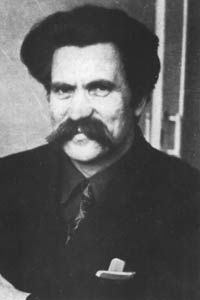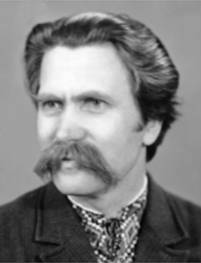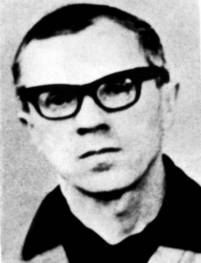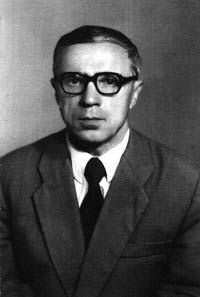Lyudmila Alexeyeva considers The Ukrainian Worker-Peasant Union (URSS), created in Lviv in 1959, to be the connecting link between the national liberation and democratic movements. Its main ideologue and founder was Levko Lukianenko, who was born in the Chernihiv region, graduated from the law faculty of Moscow University, and worked in the Radekhiv district committee of the Communist Party of Ukraine in the Lviv region. In early 1959, he and party functionary Stepan Virun decided to create an organization whose goal would be to facilitate Ukraine’s secession from the USSR. They were soon joined by Vasyl Lutskiv and Oleksandr Libovych. In 1960, Levko Lukianenko met the lawyer Ivan Kandyba and recruited him into the organization. Yosyp Borovnytsky and Ivan Kypysh also became members. Ivan Kandyba suggested they meet at his apartment on November 6, 1960. The meeting was attended by L. Lukianenko, I. Kandyba, S. Virun, V. Lutskiv, and also M. Vashchuk, a student at the regional party school, who, as it later turned out, was an informant. They discussed the program drafted by L. Lukianenko.
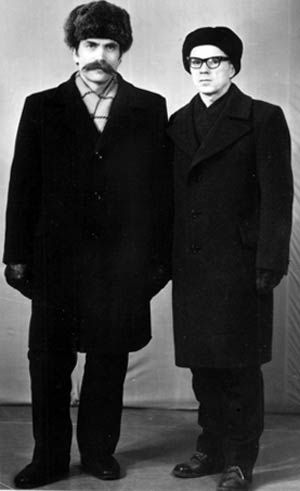
In the new version of the URSS program, the organization’s main task was the nonviolent struggle for civil rights in Ukraine, for national, cultural, and economic rights, and so on. The second stage of the struggle was to be the fight for Ukraine’s independence. The contemporary situation in Ukraine was assessed as colonial, but the program was still based on the principles of Marxism-Leninism. “A knowledge of Marxism-Leninism points to the bottomless abyss between contemporary Soviet reality and the ideals for which the proletarians of all countries fought with their leaders: Marx, Engels, and Lenin…”[2]
The next meeting was scheduled for January 22, 1961. But before that, on January 20, 1961, the arrests began; I. Kandyba was the first to be arrested. Levko Lukianenko was arrested on January 21. The new version of the URSS Program was never written down and appeared in the case file only in the aforementioned “Notes.” However, the old draft of the URSS program was confiscated and became the main evidence on which the prosecution based its case. The members of the URSS were dealt with in the same way as nationalist organizations. L. Lukianenko was sentenced to death, which was later commuted on appeal to 15 years in the camps, I. Kandyba received 11 years, and the others received 10 years in the camps. The sentences for I. Kypysh and Y. Borovnytsky were reduced on appeal to 7 years.
All members of the URSS had a higher education, and most of them were lawyers, which is why the URSS case is also referred to in literature as the “lawyers’ case.” They wanted to fight for human rights and the rights of the nation based on the Soviet Constitution and Soviet laws.
Heorhiy Kasyanov believes that the URSS program echoed the revisionist trends in the communist parties of the West and Eastern Europe, and was also a continuation of the ideological quests of Ukrainian socialists of the early twentieth century. Anatoliy Rusnachenko notes that the draft program was comprehensive and covered almost all spheres of society, which was not the case with other programs. Yuriy Danyliuk and Oleh Bazhan consider the URSS to be an organization of a “national-communist orientation.” It is difficult to agree with the terminology of the latter authors. First, despite its Marxist foundations, the URSS program documents promoted the ideas of human rights and the rights of the nation, and the “red veneer” was merely a product of the personal experience, education, and environment of the URSS members, a veneer that quickly disappeared as if it had never been there. Moreover, some URSS members, such as Ivan Kandyba, did not accept communist ideology, while others intended to use Marxism-Leninism primarily as a shield, a tool for propaganda, which is clearly evident from both the URSS program documents and the memoirs of the dissidents themselves. Second, the term “national-communist” is too reminiscent of “national-socialist,” “red-brown,” and the like.
Although this organization was short-lived and accomplished little, the URSS can be considered the first truly dissident organization in both its methods of struggle and its goals. Moreover, it was very close to the future Ukrainian human rights movement, which the most active members of the URSS later joined.[1] Audio interview with I. Kandyba, conducted by V. Ovsiyenko // KHPG Archive, 1998, p. 7.
[2] Rusnachenko, A. *The National Liberation Movement in Ukraine: Mid-1950s – Early 1990s.* / Documents and Materials / Expanded Draft Program of the Ukrainian Worker-Peasant Union. Kyiv: Olena Teliha Publishing House, 1998, p. 394.